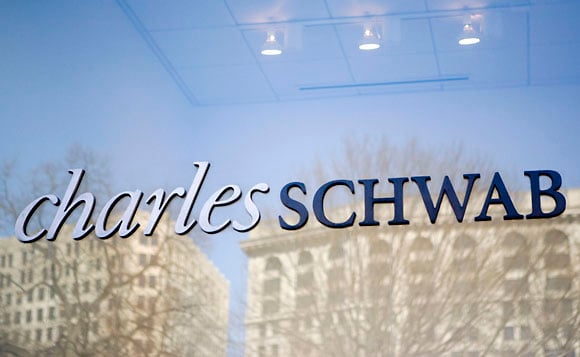Finra claims that The Charles Schwab Corp. is violating rules by including in arbitration agreements a provision requiring investors to waive their rights to bring or participate in class actions against the firm.
The Financial Industry Regulatory Authority Inc. and The Charles Schwab Corp. are engaged in a legal fight over whether a brokerage firm can avoid customer class-action claims by forcing all disputes into Finra arbitration forums.
In a complaint filed against Schwab yesterday, Finra claims that the brokerage is violating rules by including in arbitration agreements sent to almost 7 million customers a provision requiring investors to waive their rights to bring or participate in class actions against the firm.
Schwab has fired back, asking a federal court in California for an expedited opinion on whether or not a recent U.S. Supreme Court decision lets it prevent class claims via an arbitration agreement.
In a statement, Schwab said it added the class-action waiver in September 2011 after the Supreme Court's decision in AT&T Mobility LLC v. Concepcion, in which the court held that the Federal Arbitration Act pre-empts laws that ensure rights to file class actions.
The FAA, passed in 1925, supported the role of private dispute resolution by ensuring that agreements to arbitrate are upheld.
But Finra does not allow class actions to be filed in its arbitration system, and it prohibits brokerage firms from limiting customers' abilities to file claims in court that are not covered or allowed in arbitration.
Finra also contends that Schwab improperly required customers to agree that arbitrators could not consolidate multiple claims against the firm into one proceeding, a process that is allowed.
The outcome will hinge on whether the FAA trumps the Securities and Exchange Act of 1934, which gives the SEC rule-making authority over Finra, including its arbitration program, said Jill Gross, director of the Investor Rights Clinic, and a professor at the Pace Law School.
“I believe the [federal] court will find that the '34 Act will trump the FAA,” she said.
“Finra rules are subject to approval by the Securities Exchange Commission under authority given by Congress,” Schwab said in its statement. “But no rule has clearly addressed the issue in dispute here — whether a brokerage firm can adopt a class-action waiver in a customer account agreement.”
Class-action litigation “is unduly expensive and time-consuming, and too often results in little benefit to the class members,” Schwab said.
In an analyst presentation Feb. 2, Schwab chief executive Walt Bettinger said the company would reimburse arbitration filing fees to clients until the issue is resolved.
It appears that Finra wants to get tough on firms that it thinks skirt arbitration rules.
Last month, Merrill Lynch Pierce Fenner & Smith Inc. agreed to pay $1 million to settle allegations that it circumvented Finra rules requiring arbitration of employee disputes. The case arose after Merrill pursued brokers for unpaid promissory notes in New York state courts, where it enjoys legal advantages.
“My strong suspicion is that Finra is very concerned about the SEC mandate to examine securities arbitration under [the] Dodd-Frank” reform law, Ms. Gross said. Finra “wants to demonstrate that they take very seriously the investor protection function in the arbitration arena.”
Finra spokeswoman Nancy Condon declined to comment.







